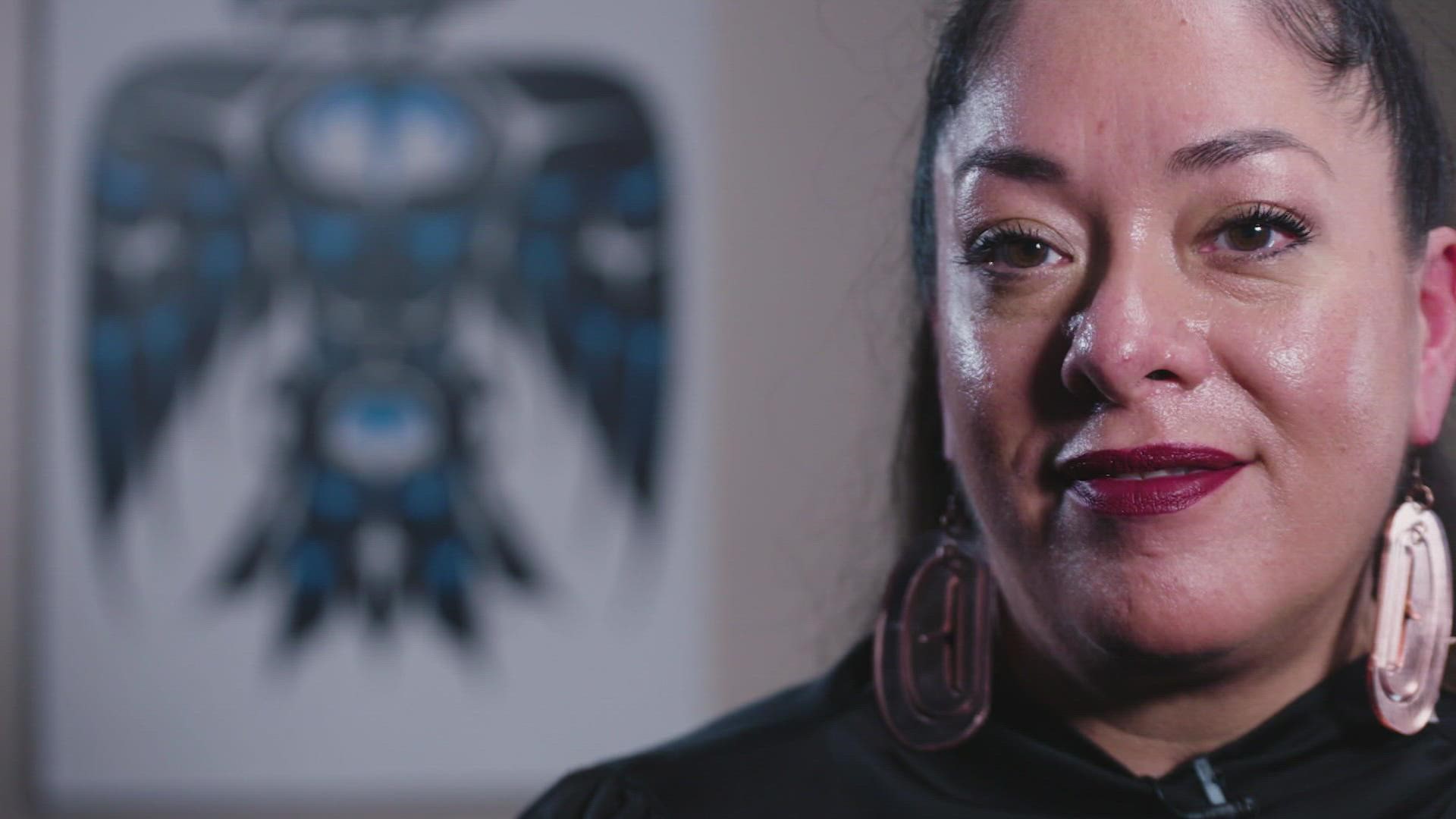SEATTLE — Tuesday marks the end of Native American Heritage Month, a time set aside to honor the rich ancestry, culture and traditions of Indigenous people.
Many Indigenous people are making a huge impact in the Pacific Northwest, including Abigail Echo-Hawk, who is working to leave a legacy in her community.
"I'm an American Indian person who was raised to give back to the community," she told KING 5.
Echo-Hawk is the executive vice president of the Seattle Indian Health Board. She is also, "a mom, I'm an auntie, I'm a community member."
And don't forget artist - a talent she uses to tell the stories of her community.
One such piece was a dress made out of body bags that were sent to the Seattle Indian Health Board instead of PPE at the beginning of the COVID-19 pandemic. The dress received national attention.
The dress is also adorned with red handprints to honor missing and murdered Indigenous women.
"One of the comments that my kids made was that, 'Hey mom, you can see all your fingerprints.' I was like, 'Yes because if I ever go missing, I would have never left you and you can have my fingerprints here if they're needed if they ever were to find my body,'" she said.
The issue of missing and murdered Indigenous women is such a serious issue in Washington state that lawmakers created a task force to assess systemic causes behind the high rate of disappearances. Echo-Hawk is one of 21 people on the task force, led by the Attorney General's Office.
"In January of this year, I contributed to a report that was issued by the State of Wyoming on missing and murdered Indigenous women and girls and people," Echo-Hawk said. "We found in that report more than 700 Native people were missing in the state of Wyoming. When that report was released, we saw a few articles, we saw a few mentions, and then nothing."
Fast forward to September and the case of 22-year-old Gabby Petito, a white woman who went missing and was later found dead. The case gained national attention and brought renewed attention to a phenomenon known as "missing white woman syndrome."
"We need to see the same efforts happening for everybody, regardless of race or ethnicity," Echo-Hawk said. Ignoring these stories makes Native communities feel invisible, she added.
Petito is believed to have been killed by her boyfriend. It's a situation all too familiar in the Native communities.
"American Indian and Alaska Native women face some of the highest rates of domestic violence and sexual assault of any race or ethnic group in this country," Echo-Hawk said.
According to a report from the National Congress of American Indians Policy Research Center, at least four in five American Indian and Alaska Native women have experienced violence in their lifetime. More than half have experienced sexual violence and/or physical violence by their partners.
Native communities are also facing "rampant health disparities," such as cardiovascular disease, asthma and cancer, Echo-Hawk said.
"We didn't have these health disparities five hundred years ago and we're working to overcome them," Echo-Hawk said.
In order to address the issues facing the Native communities, Echo-Hawk said people from outside Native American tribes need to approach them with cultural humility.
"Cultural humility is looking at yourself introspectively, recognizing that we all, in some way, contribute to the oppression of other people every single day and looking at ways to undo that," Echo-Hawk said.
Native communities aren't looking for saviors, however. They're looking for supporters, she said.
"Find the ways in which you can contribute that, again, supports the work of these communities and individuals," she said. "We don't need you to save us. What we need are true allies and accomplices to stand with us as we do this fight to reach equity for our people."
While honoring the past, Echo-Hawk is also paving the road for a better future.
"I am blessed to be a community member, serving our community, and I also can't wait for that next generation so I can step aside and let the next brilliant, beautiful voices lead our communities into prosperity," she said.

